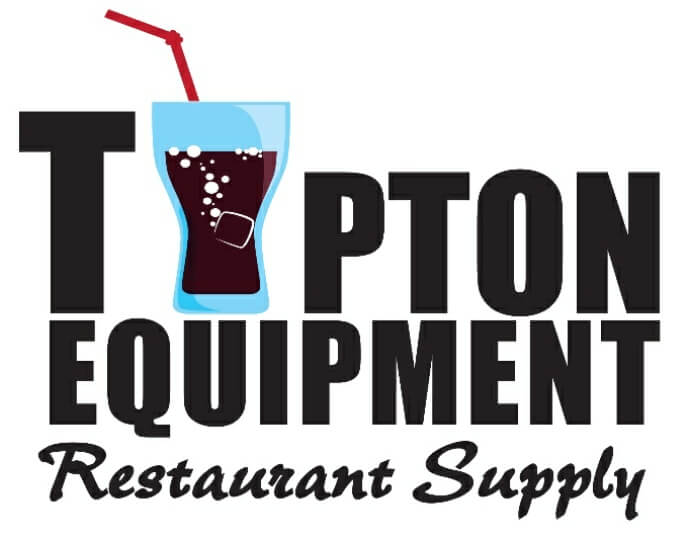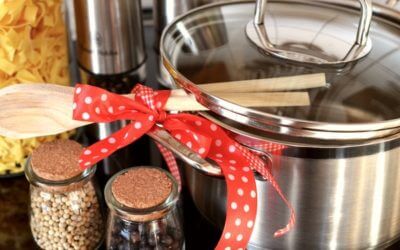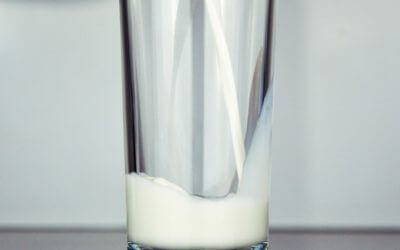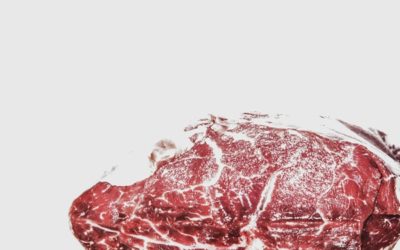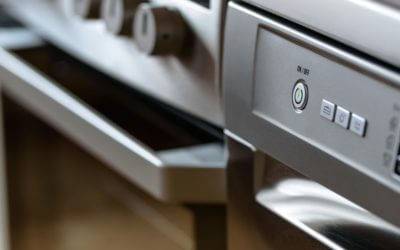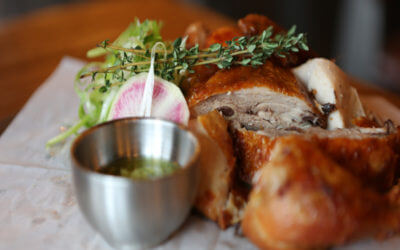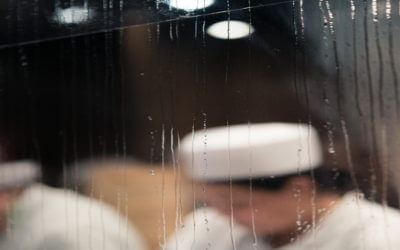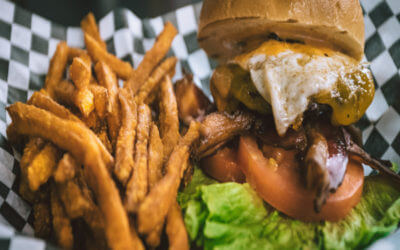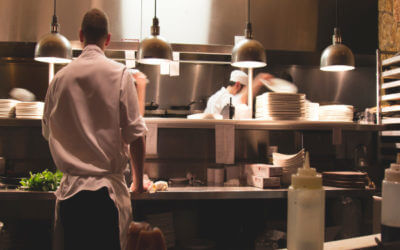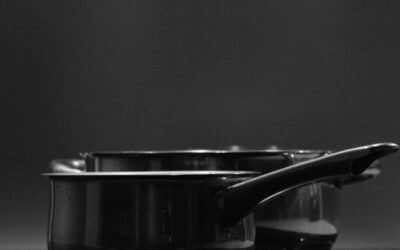3 Tips for Maintaining Your Commercial Oven
July 8, 2017As a restaurant owner, buying a commercial oven is an enormous investment. You will desperately want this oven to work properly and you need to make sure it does.
You are responsible for your restaurant business. But what if your commercial oven stops working on the night you need it the most? That’s why you need to know how to maintain your commercial oven properly. Make sure your oven works properly and prevent complications using the following tips.
1. Be gentle with your commercial oven door.
As ovens gets older, they develop inefficiencies in cooking and heating. Meals might take longer to get heated than they did when the oven was new. Also, your costs might rise due to higher usage of electricity and lower efficiency. The commercial oven might lose valuable warmth in a specific spot. All these complications can be the result of a broken oven door seal. Fixing this issue will save you a tremendous amount of time and money. You can prevent such an issue by regularly checking this and by not putting too much force on the oven door. Opening it too forcefully or slamming it shut puts too much force on the oven door, and this will result in a worsening tightness.
This issue is extremely easy to check; just put a piece of paper through the opening. If you can slide it through without any resistance, your oven door needs to be fixed. If you can’t slide the paper through, then you don’t have to worry about this particular issue, for now.
2. Check your commercial oven thermostat.
Another thing to check regularly is your thermostat. Be sure that your thermostat is calibrated well. If it isn’t, you could experience a multitude of cooking issues caused by temperatures being either too high or too low. Dishes might take too long to cook, or they might easily burn. That is one thing that you certainly do not want to happen on a busy evening.
You can check the thermostat by putting another thermostat that you know is well-calibrated inside the oven and comparing both temperatures. If there’s a difference in temperature, you need to recalibrate your thermostat with the right temperature.
3. Clean your commercial oven regularly.
If you don’t clean your commercial oven well and regularly, you’ll find your customers complaining about the taste. Remainders of old food can get mixed with the food you’re cooking. You might even hear complaints about the smoke from the oven tainting the flavor of the meal.
If you accidentally spill food in your oven, clean it as soon as possible; spills get cooked into the oven’s interior if you don’t clean it right away. You should clean your oven’s interior at least once a day regardless of food splashes and spills. Gently clean your oven every day to prevent complaints, and clean it thoroughly at least once a month.
What’s in a Cooking Pot, How to Choose the Right One?
As a restaurant owner, your cooking needs might vary. Did you know that a good quality pot can greatly improve your cooking experience, while also improving the quality of your cooking? This cooking equipment is a very important one that cannot be done away with...
5 Things Every Restaurant Owner Should Do Before Buying Used Kitchen Equipment
Equipping your restaurant properly can cost a lot of money, so buying used kitchen equipment is the go-to choice for many restaurateurs. Buying used kitchen equipment for a restaurant is a bit different than buying used equipment for your home, however. You will...
Top Restaurant Technology Trends in 2018
When looking to buy restaurant supplies, you want to be on the leading edge of technology trends. This will keep your kitchen running smoothly. Let’s take a look at some of the most recent trends in restaurant supplies technology. 1. New Payment Options Who would...
5 Different Ice Shapes and Why You Should Care About Them
Ice makers are very popular in the restaurant and foodservice community because they eliminate the need to buy ice every day. And of course, adding an ice maker to your collection of foodservice equipment means you will always have ice on hand when you need it. An...
Pulping and Grinding: A Starter’s Guide to Reducing Commercial Food Waste Costs
For most restaurant owners and managers, the expenses involved in making meals are always under careful consideration. Water is needed to prepare, cook and wash food; power is necessary for food prep, cooking and cooling, and so on. However, how many of us consider...
Choosing the Right Milk Cooler: Cold Wall or Forced Air?
In a restaurant, milk is an essential to have on hand for coffee and other café-style beverages, for serving with kids’ meals, and as a key ingredient in many recipes. Keeping your milk properly chilled can be difficult without the proper restaurant equipment....
How to Choose Your Next Commercial Meat Smoker
The movies that connect with us on a personal level are the ones that linger in our memories forever. Anyone who has used a commercial meat smoker knows that they have a huge influence on the taste of a meal. You need to have just the right kitchen equipment to get a...
Are High Speed Ovens Too Good to be True?
You might have heard a few of the bold claims that foodservice equipment manufacturers have been making about high speed ovens, but they can’t be possible, right? Cooking three times as faster as regular ovens? Five times as fast? Fifteen times as fast? It may seem...
Choosing the Right Food Storage Containers for Your Restaurant
Choosing the right kitchen supplies will make a difference in your restaurant. Whether it is heavy duty kitchen equipment or food storage containers, each piece of equipment plays its own important role. Today, we are going to talk about how to choose the right food...
Tipton’s Guide to Perfect Poultry Trussing
Do you ever truss birds in your commercial kitchen? Trussing is a fantastic cooking technique because it makes poultry cook faster, look more attractive and taste better. If your commercial kitchen prepares poultry, you don’t want to miss these trussing tips. Trussing...
How to Eliminate Excess Condensation in Your Kitchen
Is your commercial kitchen getting steamy? If so, you could have more than just an uncomfortable working environment on your hands. Excess moisture in your commercial kitchen can result in the corrosion of equipment, the development of mold, and even damage to your...
The DIY Guide to Your Restaurant’s Own Garden
Stocking your restaurant supply with your own home-grown herbs and produce can truly bring your dishes to life. When it comes to food, everyone knows there’s nothing like homemade and home-grown. Having your own culinary garden, however large or small, can help you...
5 Reasons a Meat Grinder Will Set Your Burgers Apart
The more you do to prepare your foods in-house with the right kitchen equipment, the fresher and more flavorful your dishes become. There are all sorts of restaurants offering fast-food style burgers, but some diners are looking for the real deal. A fresh, juicy...
Pest Preventions to Implement in Your Commercial Kitchen
Restaurant pests: it’s something that few people want to think about. Like it or not, pest management is an essential consideration for every commercial kitchen. Offering food, shelter and water, the unprepared commercial kitchen naturally provides everything pests...
Choosing the Right Material for Your Cooking Equipment
Kitchens are very unique to their chef. Just like a car mechanic has a toolbox unique to them, so is the cooking equipment in a kitchen. And over time, the same cooking equipment become a natural extension of the chef. What tools are you using in your kitchen? It...
